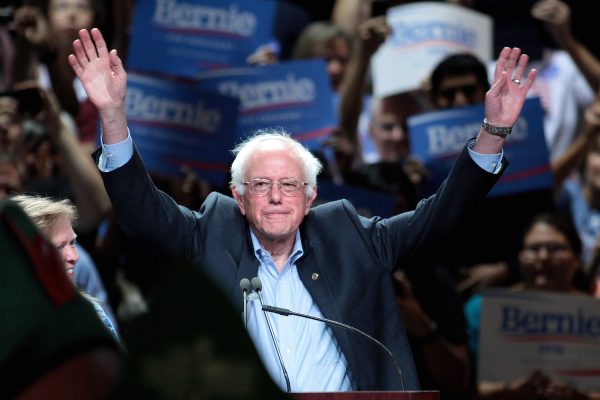
On both sides of the Atlantic, young voters are captivated by economic visions whose failures they never experienced firsthand.
In the United Kingdom, they are rallying behind Jeremy Corbyn, a far-left candidate for the leadership of the Labour Party. In the United States, they are fueling the presidential aspirations of Bernie Sanders.
Corbyn was dismissed when he first entered the race to succeed Ed Miliband — who resigned as leader after losing the election in May — and is opposed by virtually the entire Labour establishment. Yet he now leads in the polls, in part because tens of thousands of voters in their twenties have signed up to participate in the leadership contest.
Only around half of the 600,000 registered voters were previously Labour Party members. The other half is made up of trade unionists and new members who paid £3 for the right to vote.
Corbyn’s platform — free university education, the renationalization of utilities and rail, more generous welfare spending, state-covered homeopathy, withdrawal from NATO, dismantling of Britain’s nuclear deterrent, relinquishing Northern Ireland and Scottish independence — is utterly unelectable in a country that just gave Prime Minister David Cameron’s Conservatives their first parliamentary majority in two decades. But that doesn’t seem to bother Corbyn’s youthful supporters.
Nor are they put off by his knee-jerk support for whatever happens to be the leftie cause célèbre of the day. Since he was first elected to Parliament in 1983 — the very year Margaret Thatcher reduced Labour to its smallest delegation in living memory — the literally sandal-wearing Corbyn has campaigned against apartheid in South Africa, American “imperialism” in the Middle East and Israeli “aggression” against the Palestinians. Lately, his preferred target is austerity at home.
It’s not just centrist and right-wing voters who see Corbyn’s puerile and utopian socialism for what it is and remember how the policies he (still) advocates wrecked Britain in the 1970s and 80s; Tony Blair, the former prime minister who led Labour to three election victories between 1997 and 2005, has dismissed Corbyn as a throwback to the pre-Thatcher era as well.
These are policies from the past that were rejected not because they were too principled but because a majority of the British people thought they didn’t work.
Some, however, are too young to remember.
It’s the same in the United States where young leftwingers are backing Sanders’ hopeless presidential primary campaign.
Not even a Democrat, the self-described socialist from Vermont is challenging Hillary Clinton, the former secretary of state, for the party’s presidential nomination. Unlike Corbyn, he doesn’t stand a chance of winning. But Sanders could force Clinton to take more left-wing positions, imperiling her election prospects in 2016.
The Atlantic Sentinel reported in 2013 that Americans growing up in the recession were threatening to radicalize the Democratic Party. Bill de Blasio’s election to mayor of New York — the country’s largest city — that year was a sign of things to come. A deputy for his plutocratic predecessor, Michael Bloomberg, dismissed De Blasio’s agenda as a “U-turn back to the 70s” yet it prevailed.
Just as Corbyn’s fans didn’t live through the dismal 1970s nor experience Thatcher’s revitalization of the United Kingdom, Americans in their twenties don’t appreciate just what a rotten state big-government policies left their country in and how desperately it needed Thatcher’s ideological counterpart, Ronald Reagan, and his program of deregulation and privatization in the 1980s.
Like Blair, the Democrats’ Bill Clinton recognized a decade later that Reagan had shifted the middle ground in American politics to the right. He had to find a “third way” between his party’s old statism and conservatives’ anti-government sentiment to win elections again — and did.
But now a generation is coming of age that is more likely to blame government again for failing to properly regulate the market and provide a social safety net. The 2008 crash and subsequent recession galvanized left-wing activists. They may not be many (Sanders is drawing crowds in the tens of thousands; Corbyn could triumph with similar numbers) but their views are resonating.
In 2010, polls found that two-thirds of Americans under the age of thirty want a bigger government with more services rather than a cheap one with fewer services, a margin 25 points above the rest of the population. Nearly one in two young Americans has a favorable view of socialism.
In Britain, YouGov recently found that students are to the left of average voters on many policy issues — which is hardly a new phenomenon.
But interestingly, it also found that on the very issues Corbyn is campaigning on — nationalization, redistribution and taxes — British students actually lean a bit more to the right.
Plenty of youngsters in America and Britain do know their history and are more individualistic and liberal than their parents. But a minority is not and it is big enough to have a real and negative impact on the two countries’ dominant left-wing parties.
